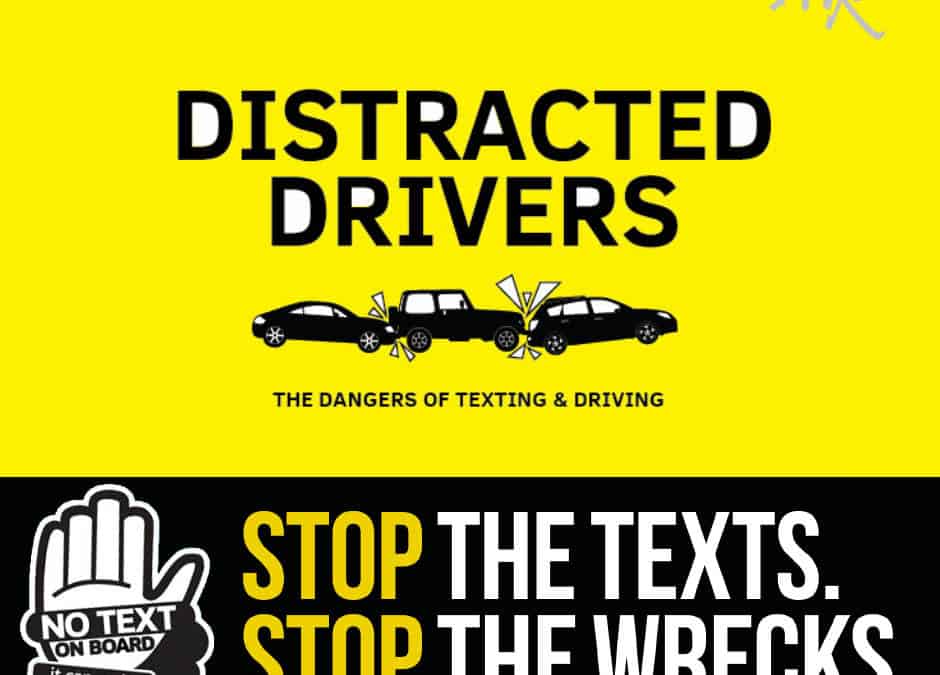Texting and driving can have severe penalties all around. Pennsylvania has followed the trend of its neighboring states and adopted a “texting and driving” law that prohibits the use of “wireless communication device[s] to send, read, or write a text based communication while the vehicle is in motion.” Since “in motion” is not specifically defined in the statute, a safe bet would be to assume that if your car is in “Drive”, your cell phone, or any digital devices, should be put away.
The citation for violating the law is a summary offense — relatively minor, and comparable to a parking ticket; there is also an accompanying fine of $50. While the officer may not be allowed to take your device when pulling you over, the court may use it, or records, to determine if messages were sent at the time in question (that is, if you challenge the citation).
So what does this new law mean? Just what the ad campaigns have been telling you — texting and driving causes thousands of accidents a year, many fatal, and we need to put measures in place to change this. Even if you are a safe driver, always be on the defensive for others who are not as careful.
If you’ve been hurt in an accident that involved texting and driving, contact us today for a free consultation and investigation into the accident.
Understanding the Texting and Driving Laws in Pennsylvania and New Jersey
Texting and driving remains one of the leading causes of distracted driving accidents in the United States. Both Pennsylvania and New Jersey have enacted laws to reduce these dangerous behaviors, but there are important differences drivers should understand to stay safe and avoid legal consequences.
Texting and Driving in Pennsylvania
In Pennsylvania, the law prohibits drivers from using an “interactive wireless communication device” to send, read, or write text-based communications while operating a vehicle. This includes smartphones, tablets, and other similar devices. The penalties for violating this law are generally a $50 fine plus court costs, though points are usually not assessed for most non-commercial drivers.
However, Pennsylvania is updating its distracted driving laws through Paul Miller’s Law, which will take effect in June 2025. Under this law, holding or manually using a handheld device while driving will be prohibited. This change significantly strengthens enforcement, allowing law enforcement to issue citations simply for holding a device, even if the driver is not actively texting. Exceptions exist for hands-free or vehicle-integrated systems and GPS use. Commercial drivers remain subject to stricter rules and higher penalties.
Texting and Driving in New Jersey
New Jersey takes a stricter approach. The state prohibits all handheld use of wireless devices while driving, including texting, browsing, and making phone calls manually. Unlike Pennsylvania, texting and handheld device use is a primary offense, meaning police can pull a driver over solely for using a device.
Penalties escalate with repeat offenses: the first offense carries a fine of around $200, the second offense rises to approximately $400, and a third or subsequent offense can reach $600, along with 3 motor-vehicle points and possible license suspension. Hands-free devices and Bluetooth systems are allowed, provided the driver does not hold the device. If distracted driving causes an accident resulting in injury or death, criminal charges may apply.
Key Takeaways
Both Pennsylvania and New Jersey aim to curb distracted driving, but New Jersey enforces stricter penalties and allows police to stop drivers solely for device use. Pennsylvania’s law is evolving to catch up with hands-free regulations. Drivers in the tri-state area should use hands-free technology, avoid texting while driving, and stay informed of updates to ensure safety and legal compliance.

Recent Comments